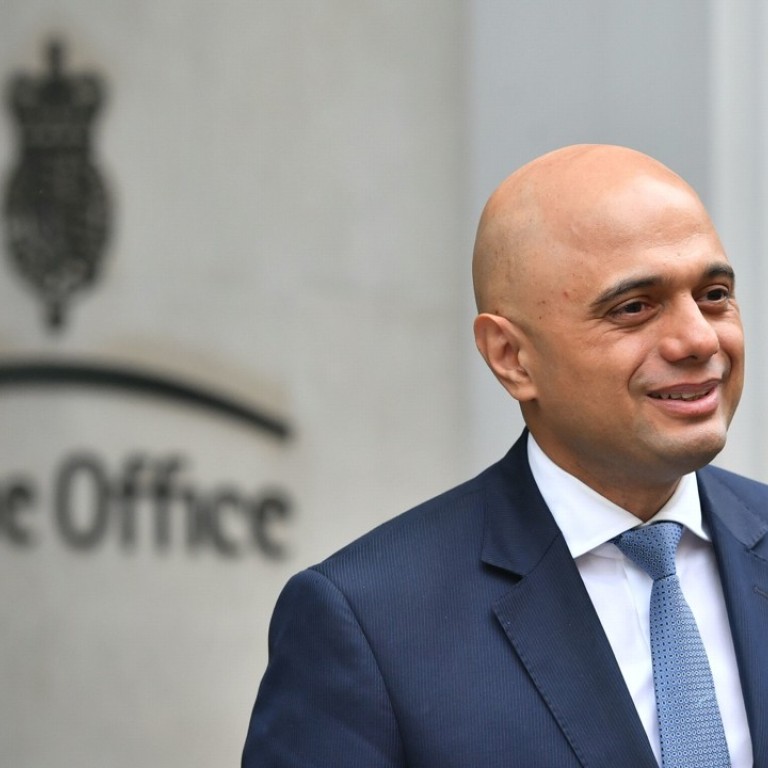
Sajid Javid replaces Amber Rudd as Britain’s home secretary
Tories rallied around PM Theresa May, insisting Rudd accidentally “misled” MPs in scandal over targets for deporting long-time UK residents from Commonwealth countries
British Prime Minister Theresa May on Monday appointed the first politician from an ethnic-minority group to the post of home secretary, as the government struggled to contain a scandal over the mistreatment of long-term residents from the Caribbean.
Sajid Javid replaces Amber Rudd, who resigned late on Sunday, saying she had “inadvertently” misled lawmakers about whether the government had deportation targets.
The “Windrush” immigration scandal has dominated headlines in Britain for days. It began when The Guardian reported that some people who moved to the UK from the Caribbean after the second world war had been refused medical care or threatened with deportation because they could not produce paperwork proving their right to live in Britain.
After the announcement, Javid said his “most urgent task” was to get to grips with the Windrush crisis, and ensure those affected “are all treated with the decency and the fairness they deserve”.
But when speaking to the BBC, he declined to say whether this affected immigration policy or targets for net removals.
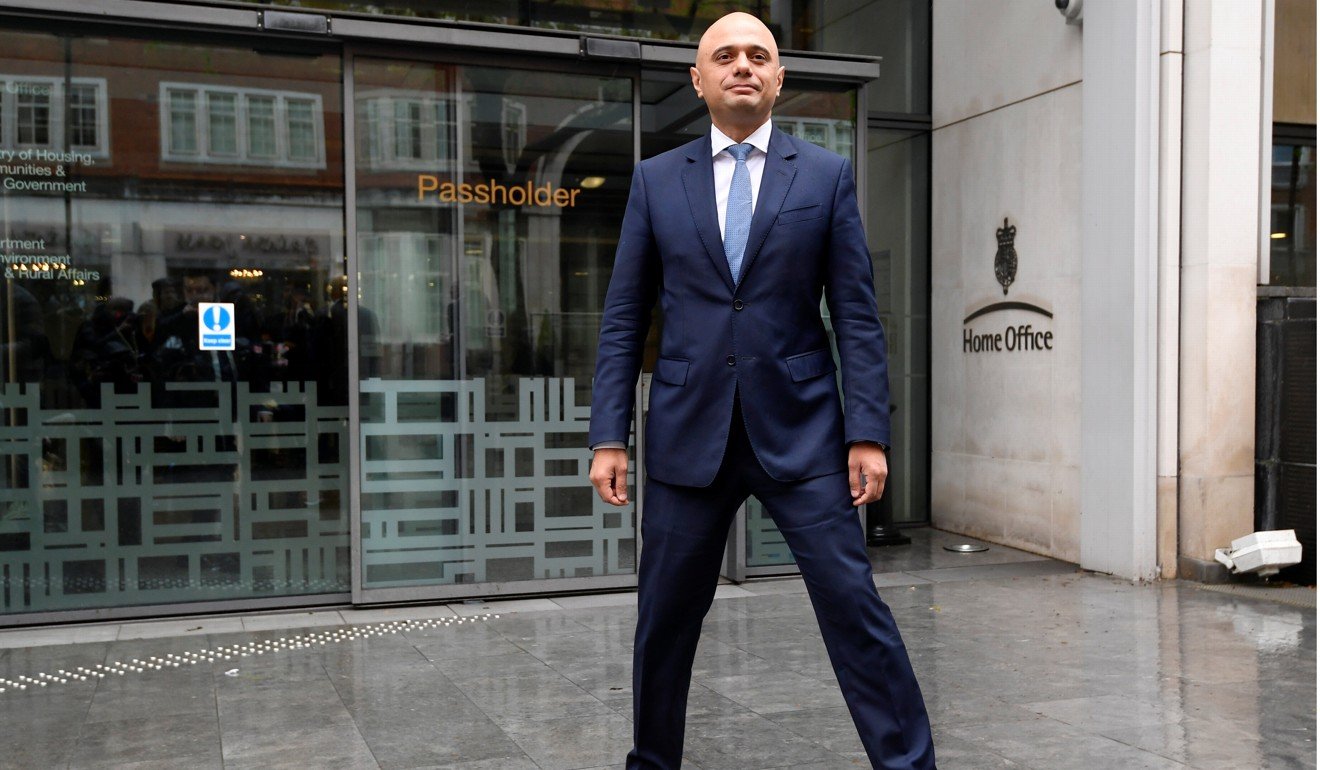
“We’re going to have a strategy in place ... to ensure that we have an immigration policy that is fair, it treats people with respect and with decency,” he said.
Immigration is a divisive issue in Britain, with cutting the inflow of immigrants a major factor for many voters in 2016 when they backed leaving the European Union. The government has a goal of reducing net immigration below 100,000 people a year, less than half the current level.
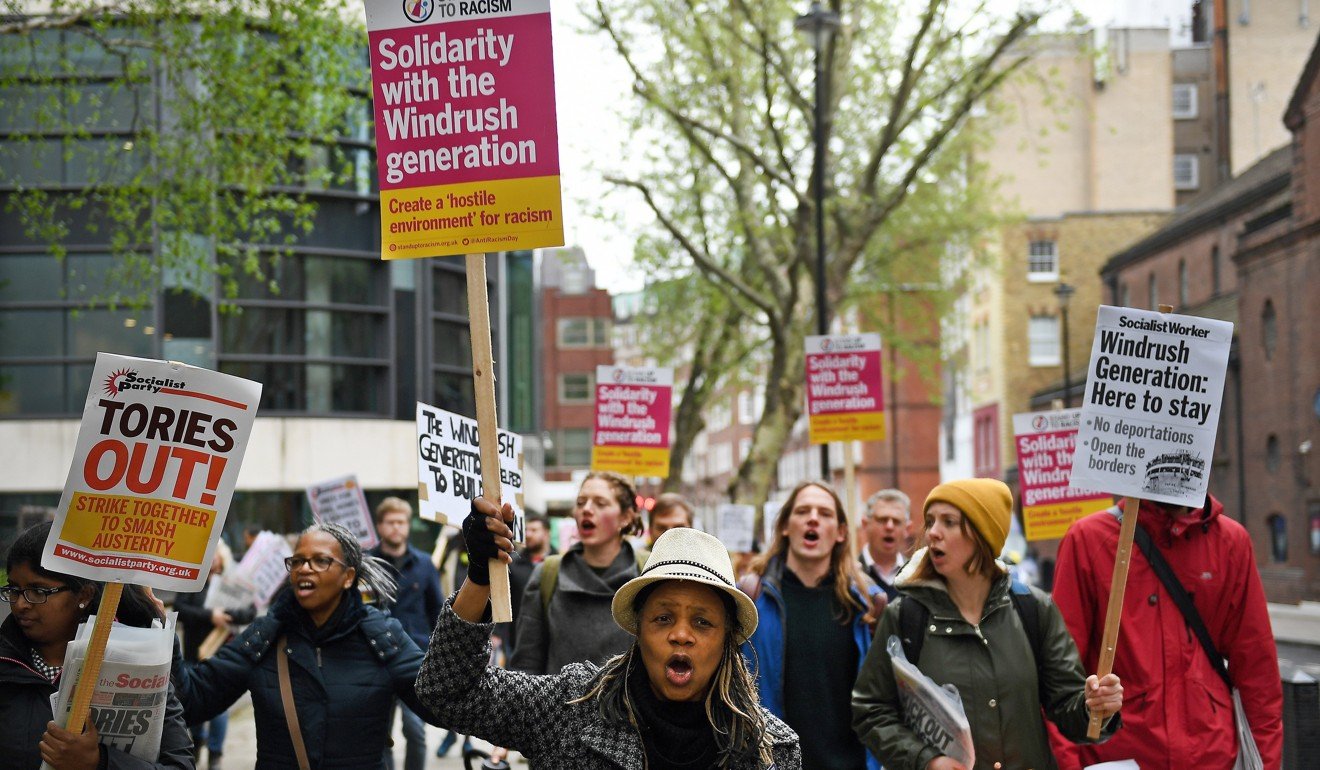
The Windrush generation is named after the ship Empire Windrush, which in 1948 took hundreds of Caribbean immigrants to Britain, including nurses and railway workers, to help it rebuild after the devastation of the second world war.
They and subsequent Caribbean immigrants came from British colonies or former colonies and had an automatic right to settle in the UK up until 1971. But some have been ensnared by new laws intended to make Britain a “hostile environment” for illegal immigrants.
Some of these legal migrants have been denied housing, jobs or medical treatment because of requirements that employers and doctors check people’s immigration status. Others have been told by the government that they are in Britain illegally and must leave.
Javid, whose parents came from Pakistan, has expressed anger at the treatment of the Windrush generation, telling The Sunday Telegraph: “That could be me.”
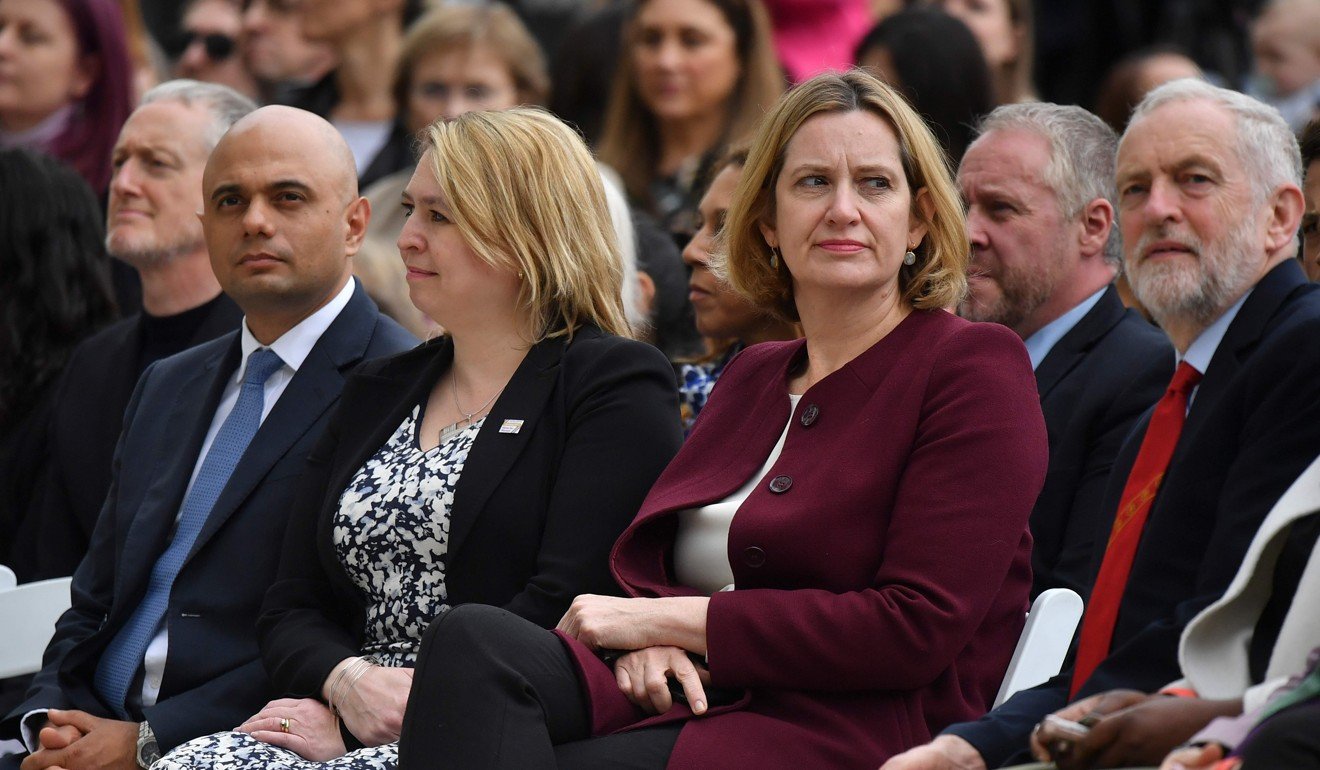
Rudd and May apologised repeatedly to the Windrush generation, saying all pre-1973 Commonwealth immigrants who do not already have British citizenship will get it and those affected will get compensation.
But Rudd’s position worsened after she told lawmakers last week that the government did not have targets for deporting people, only for a 2017 memo to emerge that mentioned specific targets for “enforced removals”.
Rudd said she did not see the memo, but The Guardian published a leaked letter she wrote to the prime minister that discussed increasing removals by 10 per cent.
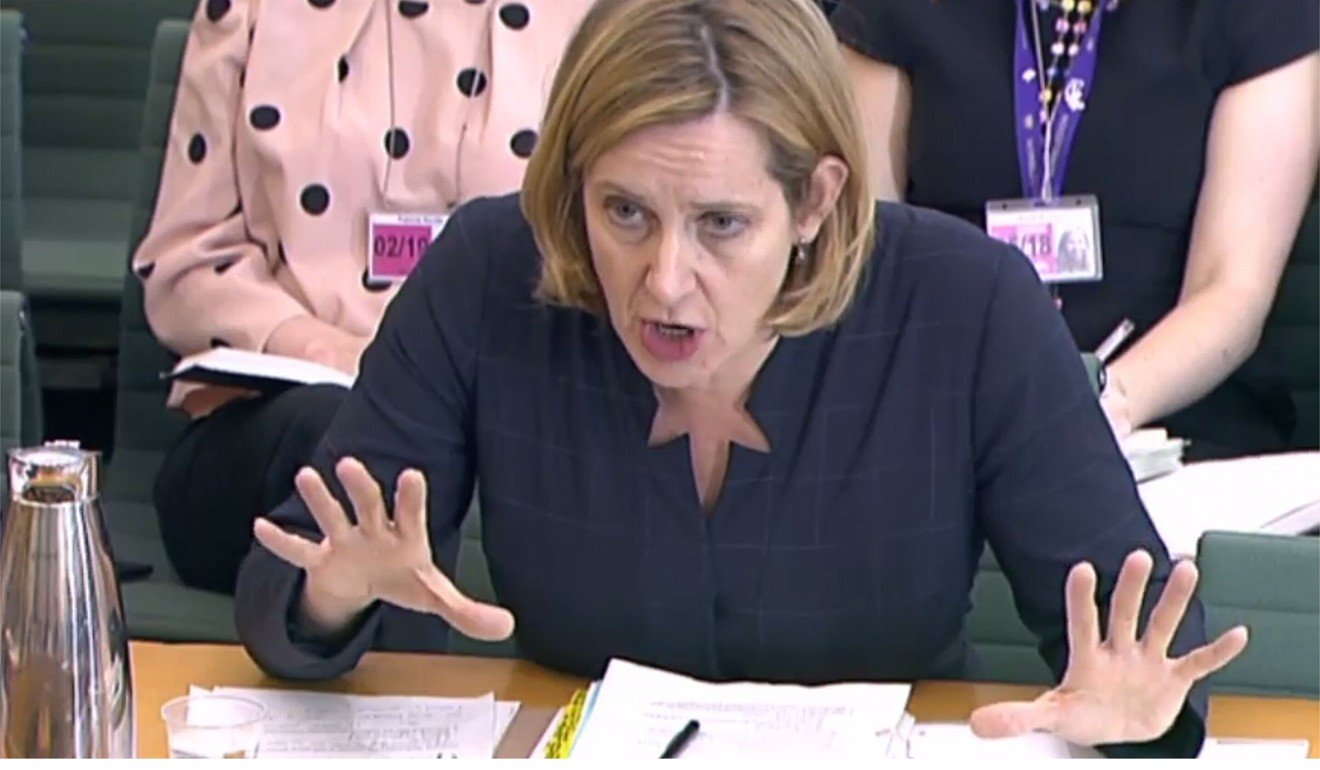
Ministers rallied round May on Monday, insisting Rudd only stood down because she accidentally misled MPs, not because of the wider Windrush scandal.
Javid, a George Osborne protégé like Rudd, was previously a minister in the Treasury. His first cabinet appointment came in 2014 as culture secretary. The former investment banker has also served as business secretary. His 18 months running the housing ministry was dominated by the Grenfell Tower fire scandal.
Additional reporting by The Guardian

